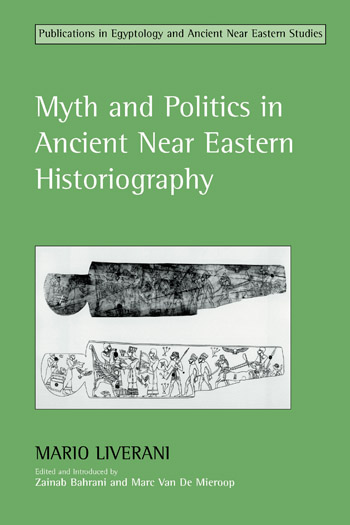6. Aziru, servant of two masters
Myth and Politics in Ancient Near Eastern Historiography - Mario Liverani
Mario Liverani [+]
University of Rome “La Sapienza”, (Emeritus)
Description
Rib-Adda’s bane was the royal house of Amurru, the state inland from Byblos in Syria and the northernmost Egyptian vassal. He griped constantly about the hostile acts of Abdi-Ashirta and his sons, especially Aziru. While much in his complaints was empty rhetoric to gain Pharaoh’s attention as was pointed out in the previous chapter, the leaders of Amurru were not the reliable vassals they proclaimed to be in their own letters to Egypt. Pharaoh suspected foul play and demanded that Aziru come to him to explain himself, a trip the latter wanted to avoid. The form and contents of Aziru’s letters regarding this matter are the subject of this chapter. Amurru was unusual in the Syro-Palestinian region in that it was not a kingdom focused around a central city, and did not have an old dynasty. Abdi- Ashirta had recently established himself as a ruler of the region and only under Aziru had the house been accepted as royal. There was also a strange overlap between the name of the state and that of the larger province the Egyptians had organised in northern Syria. The province was administered from the city of Sumura on the coast, a city that had been destroyed and was abandoned by the Egyptian governor. Its rebuilding was one of Aziru’s tasks but also here he was reluctant to proceed. Because of the absence of Egypt’s governor he could act as if he were ruler over the entire province of Amurru rather than just over the kingdom. Aziru ended up going to Egypt, but was able to exonerate himself and return home. Probably soon afterwards he concluded a vassal treaty with the Hittite king Shuppiluliuma (Beckman 1996: 32–7) and openly abandoned the Egyptian sphere of influence. Amurru remained a Hittite vassal for some 150 years. The primary basis for the study of Aziru’s career is the Amarna correspondence, recent translations of which can be found in Moran (1992) and Liverani (1998–99). The letters from Amurru were studied in a special monograph by Izre’el (1991).






